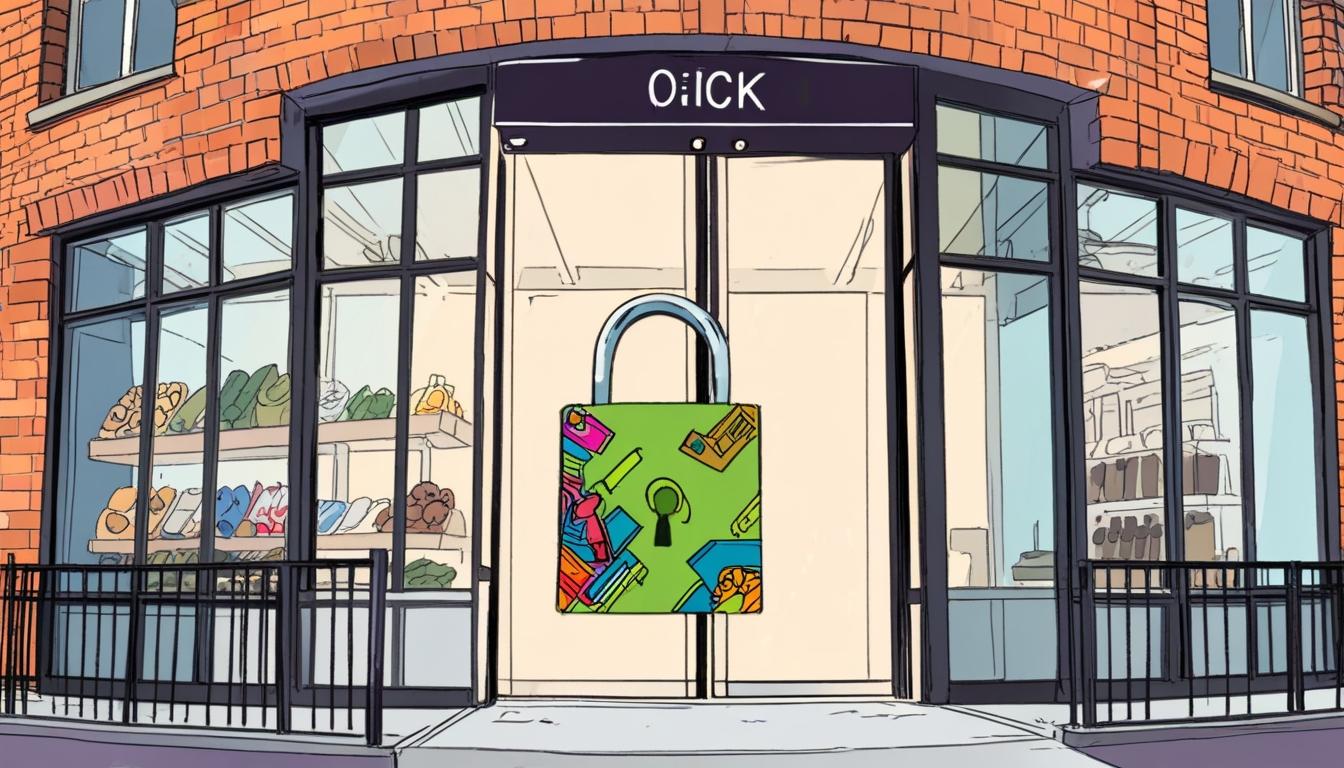Crippling cyber attacks on prominent UK retailers Marks & Spencer and Co-op have exposed significant vulnerabilities within the food and beverage sector, prompting a scramble to bolster cybersecurity measures. Nearly three weeks after the attacks, both companies are still contending with severe operational disruptions, resulting in empty shelves and suspended online shopping capabilities.
These recent incidents represent not only individual corporate crises but also a worrying trend in which the food sector has become a prime target for cybercriminals. Richard Werran of BSI articulated this shift, noting, “Cyber attackers have moved on from trying to attack banks and car manufacturers; they’re targeting the food sector because it’s such a weak sector.” This shift away from traditional targets underscores a rapidly evolving threat landscape that many within the industry have been slow to address.
Despite warnings from security experts, many companies within the sector have prioritised other operational needs over cybersecurity. David Mudd from BSI remarked earlier this year that there exists a damaging attitude: “The opinion seems to be, ‘We could spend these millions on security and something bad might not happen, alternatively we could spend the same millions somewhere else in the organisation and something good is going to happen.’” Yet, as the recent attacks demonstrate, the consequences of neglecting cybersecurity can be catastrophic.
Cabinet minister Pat McFadden echoed this sentiment, suggesting these incidents should serve as a wake-up call. During a government-organised meeting on cybersecurity, he stated, “Cybersecurity is not a luxury but an absolute necessity.” His comments were particularly poignant given that Marks & Spencer has not processed online orders since the attack on its IT systems, an infrastructure failure that has generated serious financial repercussions estimated at £30 million.
The attacks have also prompted a remarkable spike in interest surrounding cybersecurity—Bionic reports an increase of 320% in queries for cybersecurity support since the incidents. Google searches for the term “cyber attack” have surged by a staggering 588%, indicating widespread concern among businesses and the public alike. Laura Court-Jones from Bionic provided timely advice, emphasising that investing in preventative measures, such as regular software updates and employee training, is crucial in mitigating the risk of future attacks.
Concerns are not limited to large retailers; small businesses remain particularly vulnerable due to often inadequate security infrastructures. However, the incidents involving Marks & Spencer and Co-op have highlighted that even well-established corporations are not infallible. Furthermore, the situation complicates the relationship between retailers and cyber insurance providers. Holly Waszak, head of cyber claims UK at Marsh, noted that insurers are closely monitoring developments, with an expectation that retailers may soon need to demonstrate a minimum level of cybersecurity to qualify for insurance.
Adding to the complexity of this crisis, the UK’s National Cyber Security Centre (NCSC) has issued warnings about sophisticated social engineering tactics being employed by attackers—methods that involve tricking IT personnel into resetting passwords. This approach was reportedly used in the recent cyber incidents affecting Marks & Spencer and Co-op, with hackers impersonating employees to breach security protocols. Although Signs of a coordinated effort among hackers remain unconfirmed, such tactics underline the evolving sophistication of cyber threats.
As retailers such as Tesco prepare for increased scrutiny over their cybersecurity measures—citing ongoing efforts to enhance threat preparedness—the overarching message from government officials and industry experts is clear: the time for complacency has passed. The introduction of a new cybersecurity strategy highlights the government’s proactive stance, with McFadden linking the rise in cyber threats to the increasing adoption of artificial intelligence technologies. As these tools become more prevalent, they are expected to exacerbate existing vulnerabilities and create new avenues for attacks.
In summary, the cyber attacks on Marks & Spencer and Co-op have not only precipitated immediate operational chaos but have also ignited a broader industry reassessment of cybersecurity policies and practices. As the retail sector grapples with these challenges, the stakes have never been higher, demanding that both businesses and consumers remain vigilant in the face of an evolving and relentless cyber threat landscape.
Reference Map
- Paragraphs 1, 2, 3, 4
- Paragraphs 1, 2
- Paragraph 4
- Paragraphs 5, 6
- Paragraphs 7, 8
- Paragraphs 9, 10
- Paragraph 11
Source: Noah Wire Services
